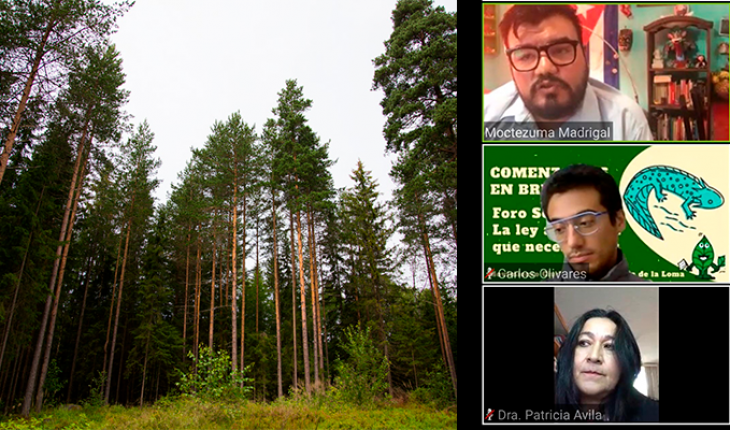Naomi Carmona
Morelia, Michoacán. – Environmental specialists and representatives of civil organizations, concluded that the new Environmental Law pending reading and approval in the Congress of Michoacán, is retrograde and regressive, being based on business and profit policies, especially on the issue of protected natural areas.
During the virtual analysis forum “The Environmental Law Needed”, the experts mentioned that the proposal made by the Executive Branch releases the protected natural areas to take hold on a discretionary basis, i.e. it regulates that landowners who are not interested in their protection, may dispose of the area for commercialization or fragmentation.
UNAM Doctor Patricia Avila detailed that the new law gives ease to the change in land use, making it a less advanced law than the previous one in 2017.
“Everything that in the General Law on Ecological Balance is defined as public utility, that is of social and collective benefit, in this bill eliminates it, is no longer public utility, but of public order, that totally changes the notion because it has to do with the state, of rules, it takes away the possibility that others of the State , other actors may influence and participate in the issue of environmental management (…) In the current law it says that the change in land use has to undergo a process where it has to be justified why that area is ecologically important in case it has to make a change, in the assumption that circulates that process is eliminated, then the change in land use becomes discretionary. Instead of having a law that ensures that these areas are strategic, this law facilitates their change and only moves to administrative competence.”
At the express question, Moctezuma Madrigal, spokesman for the organization Movimiento Ciudadano en Defensa de la Loma, stated that there is a foolishness on the part of the members of the Environment Committee of the Local Congress, to avoid listening to civil society and including it in the elaboration of the law, despite the already several invitations and written proposals that had been made to the LXXIV Legislature.
It should be noted that during the forum, the adviser to the Member and President of the Committee on the Environment, Mayela Salas Sáenz, was made known, who mentioned that the members met with the State Ecology Council (Coeco) and questioned the absence of specialists, and requested to be sent to the committee, denying that there is closure of congress to civil organizations.
Patricia Avila’s response was to remind the adviser that the issue is not only closed to environmental specialists and lawyers for the drafting of the reforms, but includes society in general and the sign of the refusal of legislators materializes with the rejection of invitations to dialogue tables by Members.
translated from Spanish: “New Environmental Law is retrograde and benefits entrepreneurs,” experts conclude
August 4, 2020 |





